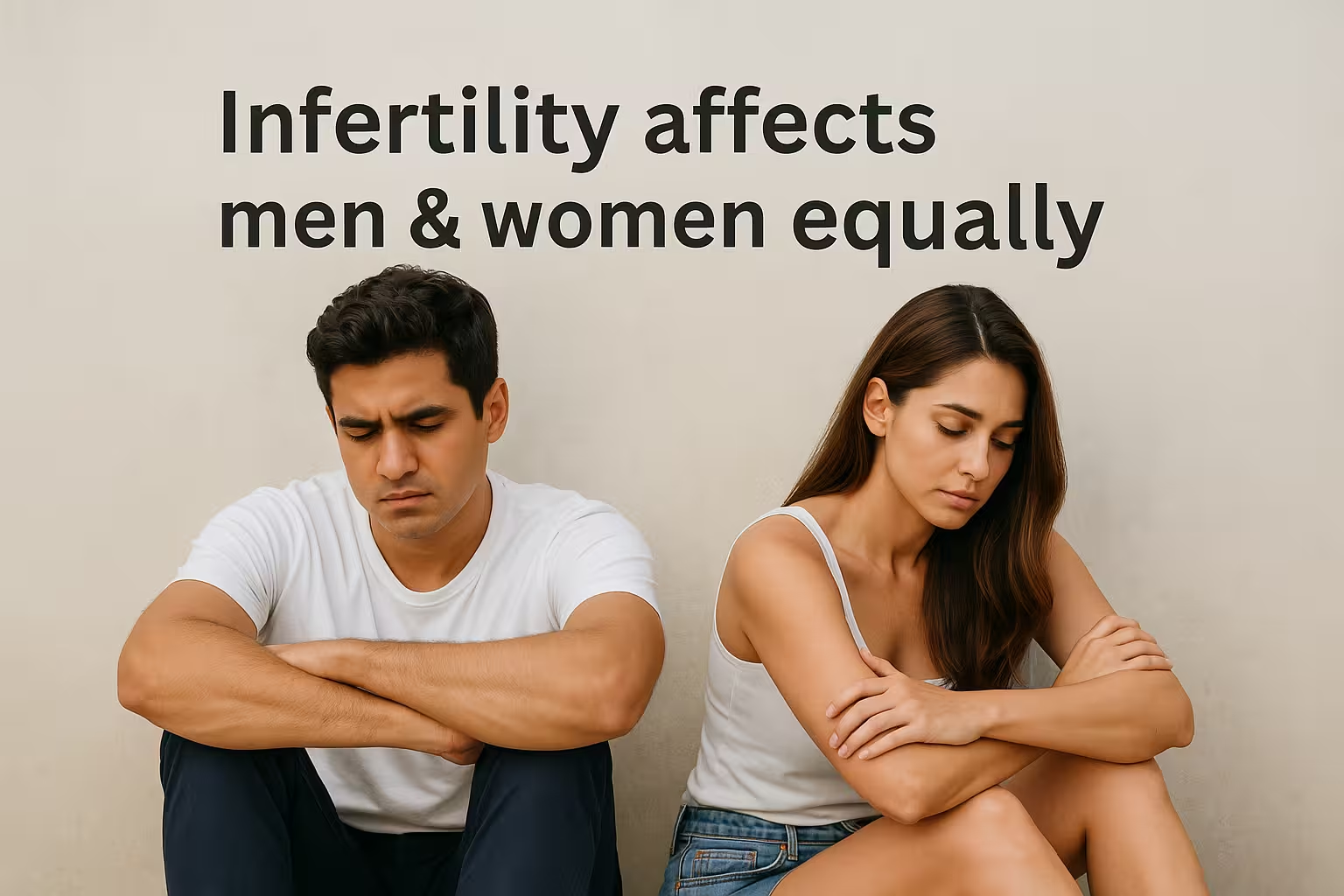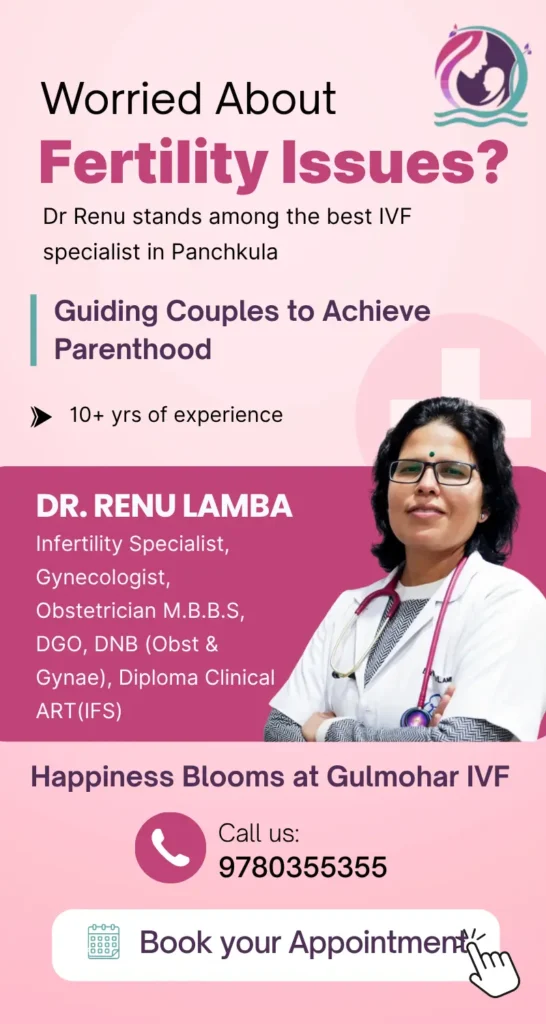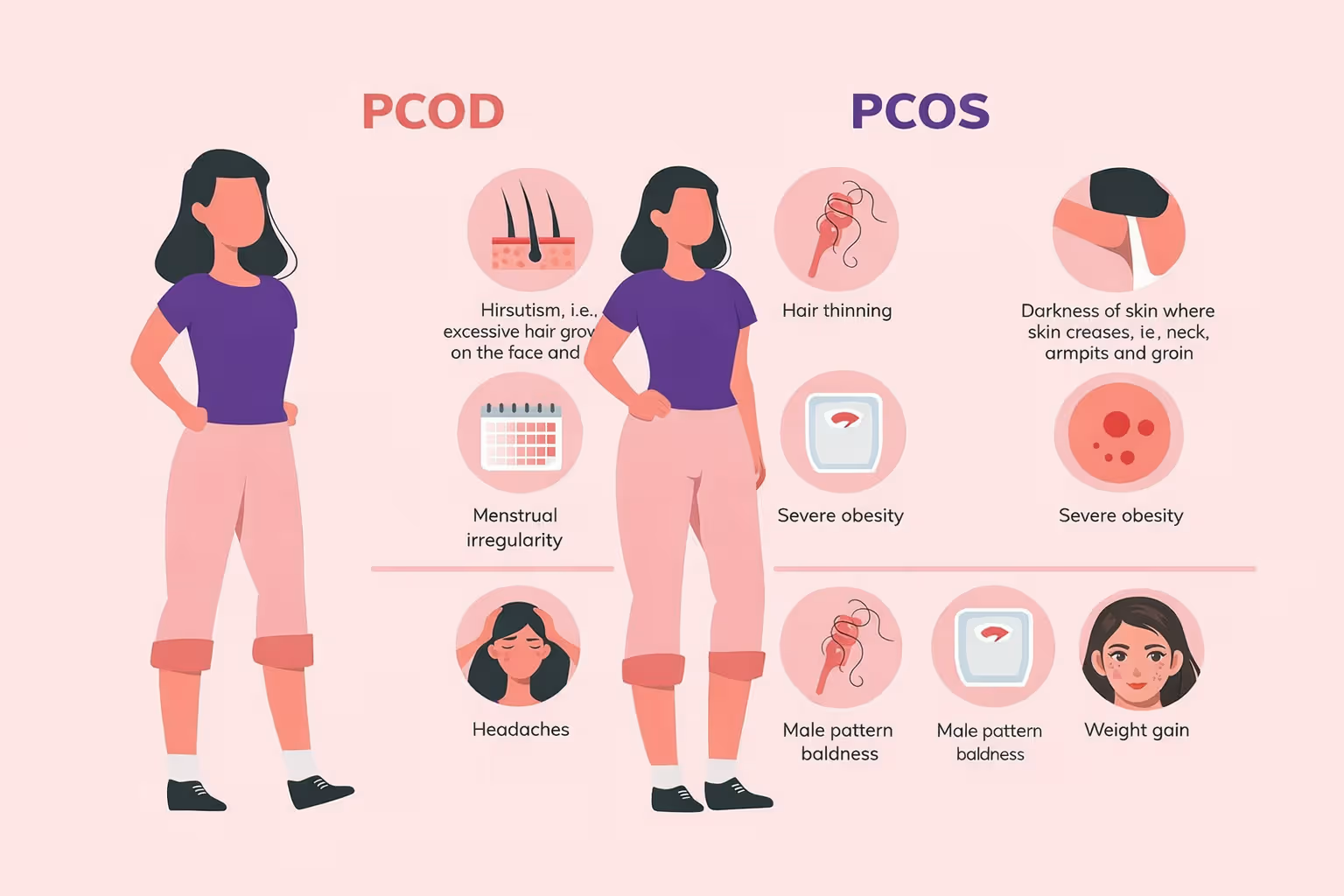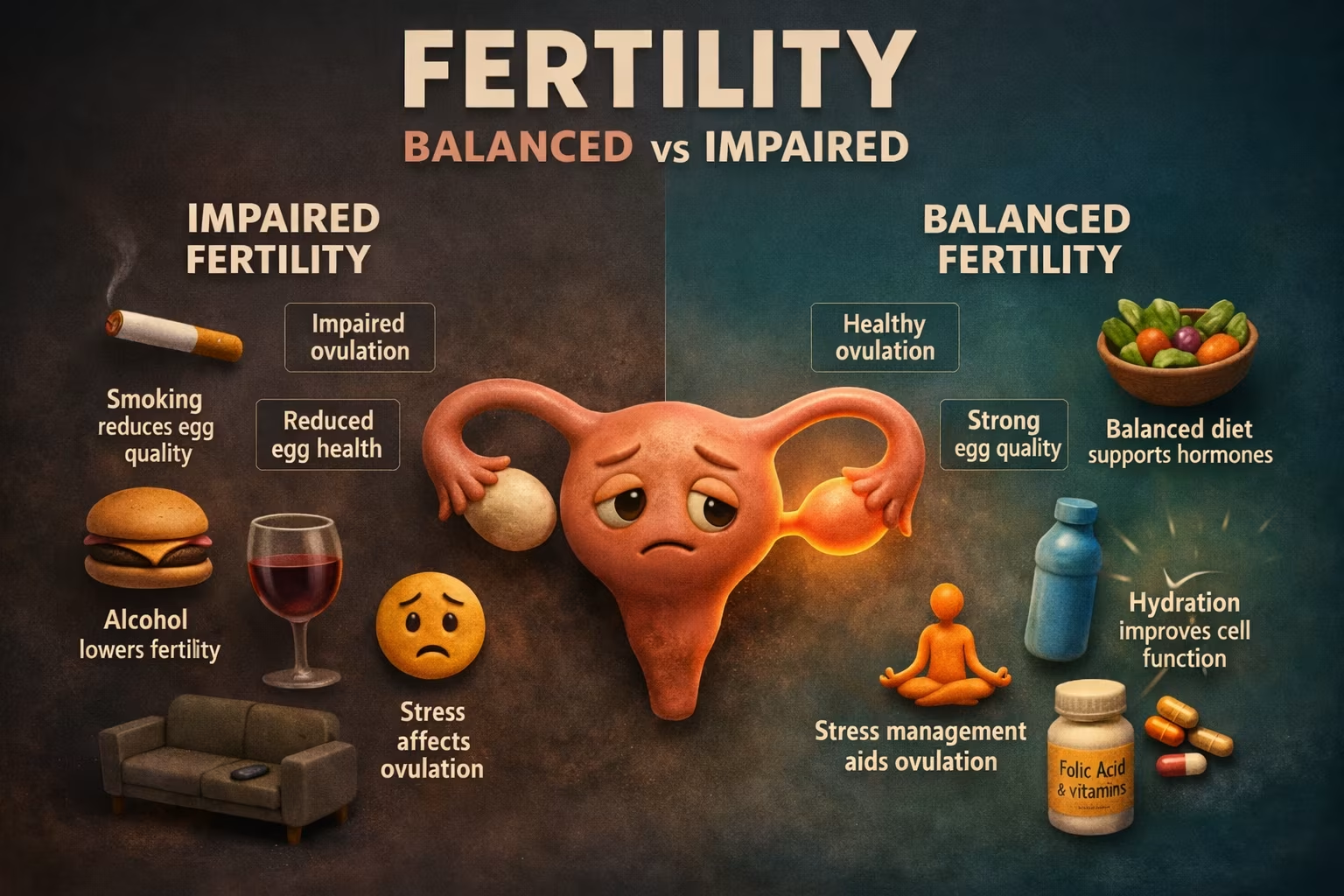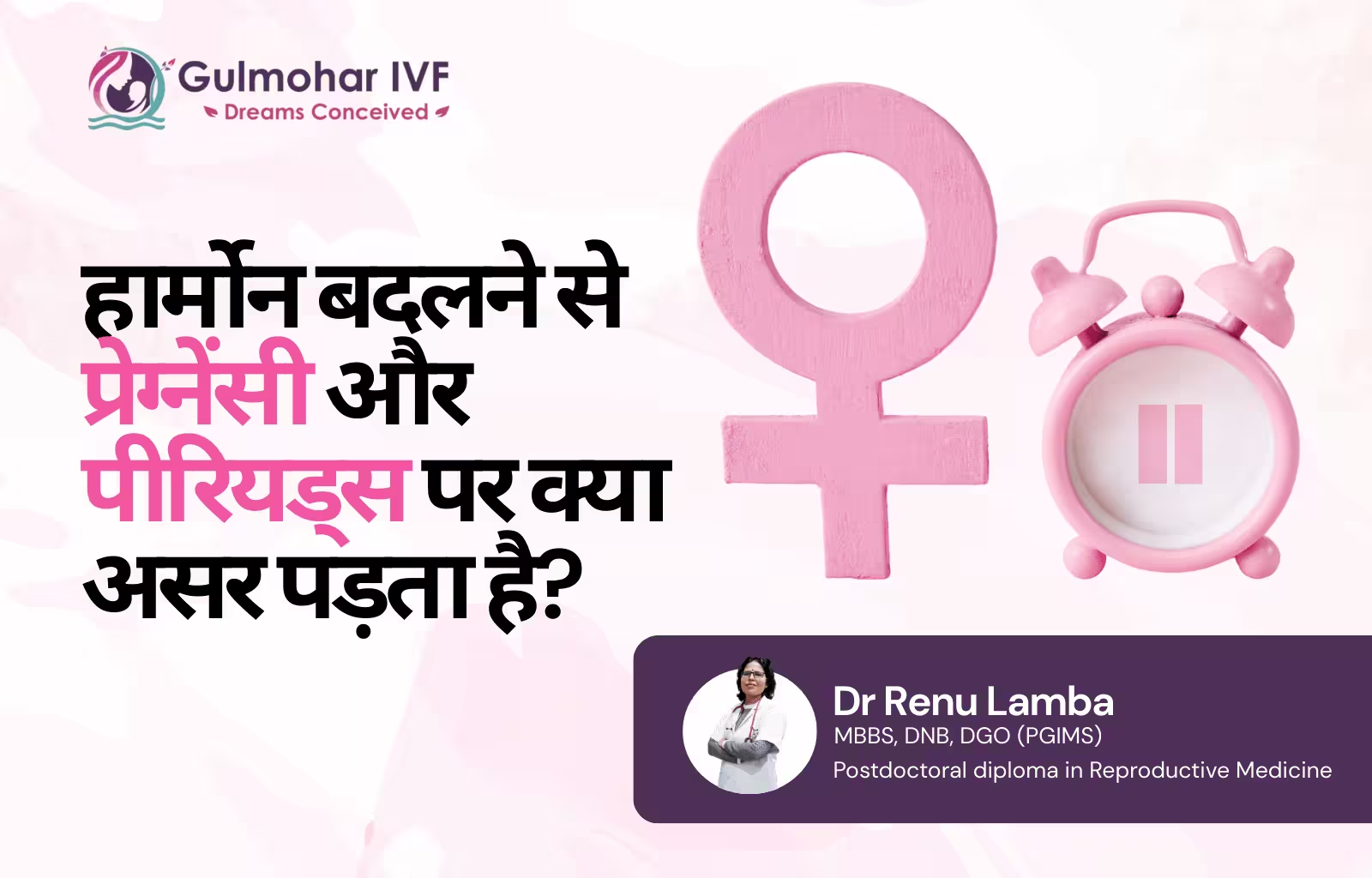You know, infertility and mental health in India are rarely talked about together. But they should be. Because when a couple starts dreaming of parenthood and it doesn’t happen as expected, it’s not just a physical struggle. It’s an emotional one that touches every part of their life.
Most couples don’t even realize when hope turns into worry and that worry starts affecting their peace of mind. They smile in front of others but break quietly inside. Every family question about “good news” feels like a punch they can’t avoid. The emotional impact of infertility on couples runs deeper than most people imagine.
According to a study by the study, over 30–40% of Indian couples dealing with infertility show signs of anxiety, depression, or both. And you won’t believe this, but most of them never even talk about it not to friends, not to family, and sometimes, not even to each other.
Infertility and mental health in India are tied together by silence. The good part? That silence can be broken, and when it is, healing starts. This article walks you through what couples actually go through emotionally and how understanding, counselling, and patience can bring them back to strength.
For a deeper look into how infertility affects the mental health of Indian couples, check out our main guide – The Silent Strain: How Infertility Affects Mental Health of Indian Couples.
“Infertility doesn’t just test your body. It tests your heart, your patience, and your connection.”
Infertility and Mental Health in India: The Hidden Connection Most People Miss
Here’s the thing infertility doesn’t stay inside the clinic. It walks into homes, thoughts, and daily conversations. Couples start feeling like time is slipping away. The pressure builds quietly with every passing month.
In India, marriage and parenthood are often seen as inseparable. So when pregnancy doesn’t happen, the couple feels judged, even if no one says it aloud. That judgment slowly turns into self-doubt.
According to a study, about one in three women facing infertility shows clinical levels of depression. Men, too, feel helpless but hide it under the idea of “being strong.” The problem isn’t just infertility it’s how society reacts to it.
What really hurts couples
- The constant advice and comparisons
- Social isolation from family gatherings
- Friends announcing pregnancies online
- Feeling “left behind” in life’s timeline
What this really means is infertility doesn’t just challenge your body, it challenges your sense of belonging.
“Sometimes, the hardest battles are the ones no one else can see.”
The Emotional Side of Infertility Few People Talk About
Infertility changes everything. It affects not just the body but also the heart and mind. What begins as excitement soon becomes an emotional test of patience and strength. Each cycle brings new hope, and when it fails, new heartbreak. Couples silently battle feelings of fear, guilt, and sadness that can easily overwhelm them. This is where the connection between infertility and mental health becomes deeply visible.
You start seeing time differently. Life splits into before treatment and after results. Every small event meeting friends, attending family functions, or seeing baby photos can trigger emotional pain. It’s not just physical exhaustion; it’s mental too. The unspoken stress of infertility and mental health struggles can affect relationships, confidence, and even daily motivation. Many couples find it hard to talk about their emotions, afraid of being judged or misunderstood.
Yet within this struggle lies resilience. Couples learn to communicate better, support each other, and rediscover hope. True healing isn’t only about medical treatment, it’s also about nurturing emotional strength, finding peace, and seeking help when needed. Understanding the bond between infertility and mental health helps couples realize that emotional care is just as vital as physical care on the journey to parenthood.
You start counting time differently. Life becomes divided into “before treatment” and “after results.”
Common emotional reactions among Indian couples include:
- Guilt and self-blame (“Maybe it’s my fault”)
- Constant stress before doctor visits
- Feeling sad at baby showers or pregnancy news
- Comparing their journey to others
These emotions don’t make you weak. They make you human. But when ignored, they start creating emotional distance between partners. The constant stress, disappointment, and silence can take a toll not only on physical health but also on infertility and mental health.
Why does this matter? Because when couples hide their feelings, they don’t protect each other they isolate themselves. Talking openly, seeking emotional support, and understanding that both partners are equally affected helps rebuild trust and connection. Addressing infertility and mental health together can turn pain into partnership, and silence into healing.
“Healing begins when you stop pretending you’re fine.”
Why Mental Health Support Still Lags Behind in Fertility Care
Here’s something strange. India has world-class IVF centers, but most couples never meet a fertility counsellor. Emotional care is still seen as optional.
Reasons emotional care gets ignored:
- Families think counselling is unnecessary
- Couples believe mental stress isn’t a “real” problem
- Clinics don’t offer integrated mental health support
- The pressure to succeed overshadows emotional readiness
Ignoring emotional health has real consequences. Stress directly affects fertility hormones, making conception even harder for couples. A calm and emotionally steady couple often responds better to treatment than one filled with anxiety.
A study found that couples who received counselling before IVF reported better relationship satisfaction and lower stress during the process. This shows how closely infertility and mental health are connected, and why emotional care should be part of every fertility journey.
“Fertility treatment works better when the heart is healed too.”
How Infertility Emotionally Affects Couples in Indian Marriages
Infertility and mental health in India affect both partners equally, though in different ways. The emotional impact of infertility on couples builds slowly through waiting, tests, and constant uncertainty.
When Uncertainty Begins to Affect Hope and Self-Esteem
The hardest part of infertility is not knowing what’s next. Couples begin to question everything timing, effort, even destiny. For women, each month without good news feels like failure. For men, it’s a quiet frustration that turns into helplessness. The uncertainty, fear, and emotional pain together highlight how deeply infertility and mental health are intertwined, affecting both partners in different but equally powerful ways.
Common emotional triggers
- Pressure from families and relatives
- Constant medical routines
- Social comparisons with others’ “luck”
- Feeling like the future is on hold
What this really means is that infertility starts testing confidence long before it tests biology.
Infertility doesn’t just affect the body. It silently seeps into the emotional space between partners. Couples stop talking about feelings to avoid hurting each other. But silence builds walls, not bridges.
When Emotional Distance Creeps Into Relationships
Watch out for these signs:
- Shorter conversations, longer silences
- Arguments over small things
- Lack of intimacy or connection
- Feeling lonely despite being together
You can rebuild closeness through little gestures shared meals, short walks, gratitude, or even laughter.
“Love doesn’t fade during infertility. It just needs to be reminded it’s still there.”
Real Signs That Infertility Stress Is Taking Over
Sometimes, stress hides quietly beneath the surface. You might feel restless, lose sleep, or become easily irritated without even realizing why. Over time, these small signs build up, affecting focus, mood, and relationships. What seems like simple tiredness is often emotional exhaustion in disguise. Recognizing these signals early is an important step toward protecting your infertility and mental health.
Signs of emotional fatigue
- Trouble sleeping
- Losing interest in hobbies
- Constant anxiety before appointments
- Avoiding friends and family
These are your mind’s way of asking for help. Talk, don’t bottle it up. Counselling or even an honest chat can make a huge difference.
How Couples Can Cope With Infertility Anxiety Together
Coping with infertility anxiety in Indian couples isn’t about ignoring emotions. It’s about facing them together as a team. When partners support each other, treatment becomes more bearable, and relationships stay stronger. Focusing on infertility and mental health helps couples stay emotionally balanced during the toughest times.
Small, daily changes can help more than you’d think. Physical and mental health go hand in hand.
Here’s what really helps:
- Go to bed and wake up on time
- Eat nutrient-rich meals (iron, folate, vitamin D matter)
- Limit caffeine and alcohol
- Take a short daily walk
- Switch off your phone for a few peaceful minutes
These small efforts build mental resilience quietly.
Talking Without Blame Makes All the Difference
Infertility often makes couples talk less when they should talk more. The goal isn’t to fix everything, it’s to stay connected.
Try these communication habits:
- Say “we” instead of “you”
- Listen to understand, not defend
- Avoid bringing up old fights during stress
- End each day with one kind word
“Blame divides, understanding heals.”
Finding Comfort in Shared Activities and Support Circles
Infertility can feel lonely, but community changes that. Meeting others who understand removes shame and creates support.
What helps most:
- Join fertility or emotional support groups
- Try mindfulness or relaxation together
- Take small trips or weekend breaks
- Spend time with people who lift you up
Healing happens faster in togetherness than in silence.
Why Infertility Counselling Helps Couples Heal Emotionally
Infertility counselling for Indian couples is one of the most underrated parts of treatment. It’s not therapy in the traditional sense it’s emotional guidance through one of life’s hardest phases.
What Happens During Fertility Counselling Sessions
In a session, couples share emotions that they usually hide. The counsellor helps both partners find balance and realistic expectations.
You can expect:
- Emotional check-ins for both partners
- Talking through guilt or blame
- Relaxation or coping exercises
- Tools for better communication
Counselling helps you see that infertility is a shared journey, not a personal failure.
How Counselling Improves IVF Success and Emotional Strength
Counselling helps couples see infertility as a shared experience, not an individual failure. Learn more about emotional support during fertility treatments and how it strengthens mental health.
Benefits of counselling:
- Reduces anxiety before procedures
- Strengthens emotional connection
- Improves patience during long treatments
- Encourages teamwork and mutual trust
“When hearts heal, the body follows.”
Why Couples Shouldn’t Wait to Seek Support
Most couples wait until they feel overwhelmed before reaching out. Early counselling prevents that emotional crash.
Why early help matters
- Reduces stress and burnout
- Prevents emotional distance
- Helps set realistic expectations
- Makes treatment feel manageable
Starting early doesn’t mean you’re weak it means you’re smart enough to prepare emotionally.
Moving Forward With Hope and Understanding
Infertility and mental health in India need to be talked about more often. The truth is, healing starts when couples face it together instead of hiding behind silence.
Why Emotional Healing Is the Strongest Foundation for Parenthood
Parenthood isn’t just about pregnancy. It starts with emotional strength, trust, and compassion. When couples care for their mental health, they build a solid foundation for whatever comes next.
A healthy mind creates a peaceful environment for healing — and sometimes, that peace is the most powerful medicine.
Conclusion
Infertility and mental health in India are connected more than most couples realize. The emotional impact of infertility on couples goes beyond tests and treatments. It touches confidence, intimacy, and peace of mind. Many couples suffer in silence, thinking they must stay strong, but silence never heals.
When couples start talking openly about infertility and mental health, they break generations of stigma. Healing starts with one honest conversation at a time.
Infertility doesn’t define your love story. How you stand together does.
Disclaimer: The information provided in this article is for educational purposes only and should not replace medical advice. Please consult Dr. Renu Lamba or a qualified fertility specialist at Gulmohar IVF for personalized guidance.


